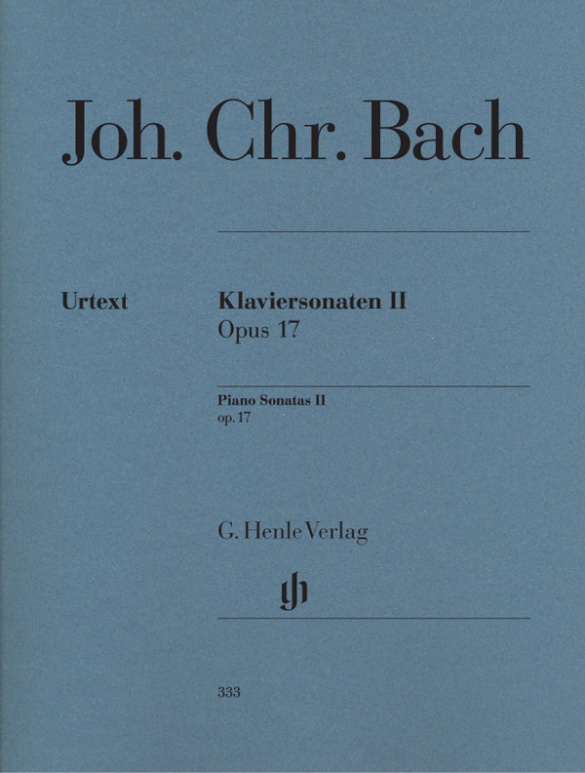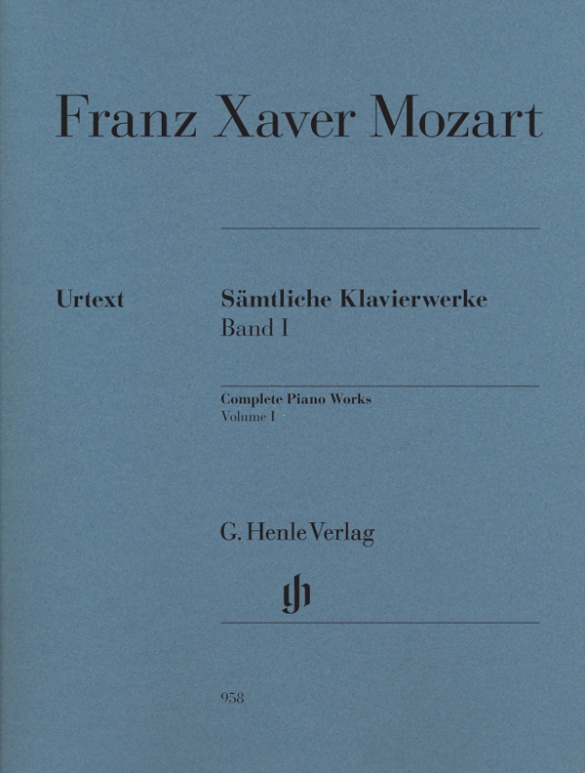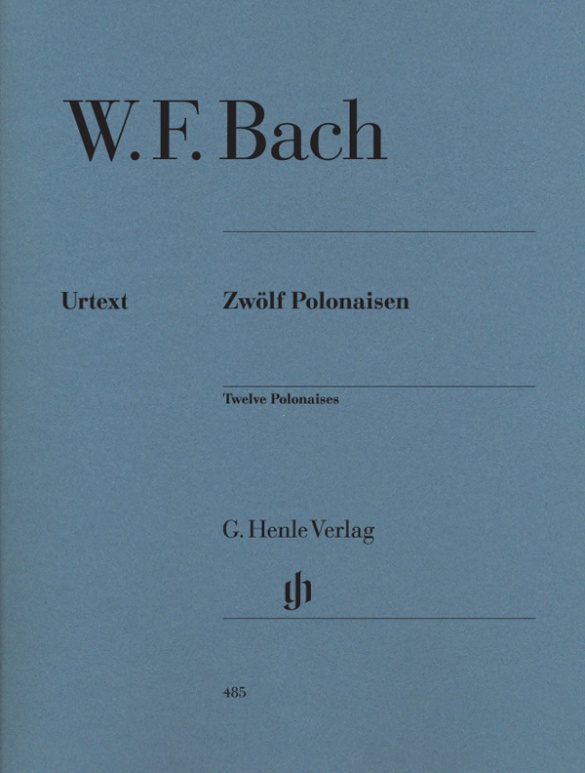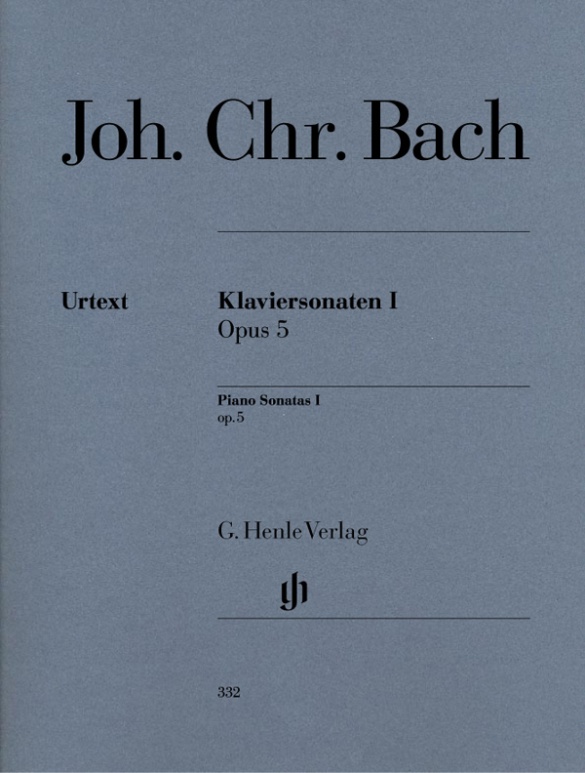

Johann Christian Bach
Sonates pour piano, volume I op. 5
Johann Christian Bach s’installa à Londres en 1762 après un séjour en Italie riche en expériences. Ses six sonates op. 5 sont déterminantes dans le développement de la sonate classique pour piano. Bach les écrivit pour le pianoforte, un instrument alors encore très récent qu’il affectionnait particulièrement et sur lequel il se produisait en concert. Lors de sa tournée à Londres, le jeune Mozart manifesta un grand enthousiasme pour la musique pour piano de celui que l’on appelait alors le Bach londonien. Son admiration fut telle qu’il reprit les sonates 2 à 4 pour en faire les concertos pour piano aujourd’hui connus sous le numéro K. 107.
CONTENU/DÉTAILS
(Explanation)
CONCERNANT LE COMPOSITEUR
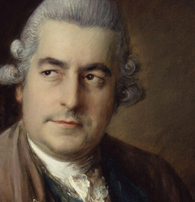
Johann Christian Bach
Le plus jeune et au XVIIIe s. le plus célèbre fils de Johann Sebastian; il fut un compositeur d’opéras renommé et joua un rôle de premier plan dans la vie musicale de Londres. Il aborda tous les genres et son œuvre immense illustre les tendances compositionnelles les plus importantes de son temps dans cette période de transition vers l’écriture classique.
| 1735 | Né le 5 septembre à Leipzig. Première formation probablement auprès de son père. Après sa mort en 1750 il rejoint son frère Carl Philipp Emanuel à Potsdam qui complète sa formation. |
| à partir de 1755 | Il se rend en Italie pour poursuivre ses études: il suit l’enseignement de Martini à Bologne, compose essentiellement de la musique sacrée et écrit à côté de cela des airs et des ouvertures pour les productions d’opéras à Milan. |
| 1757 | Il se convertit au catholicisme. |
| 1760 | Engagé comme deuxième organiste à la cathédrale de Milan. Ses opéras sont représentés dans les plus importantes villes d’Italie: entre autres «Artaserse» en 1760 à Turin, «Catone in Utica» en 1761 et «Alessandro nell’Indie» en 1762 à Naples. |
| 1762 | Il se rend à Londres où il passe le reste de sa vie en tant que compositeur travaillant à son propre compte. |
| à partir de 1764 | Fondation, avec le compositeur et gambiste Carl Friedrich Abel d’une entreprise de concert particulièrement prospère et importante pour l’histoire du concert («Bach-Abel-Concerts»). Composition de symphonies, symphonies concertantes et concertos solos. Composition d’opéras, de pasticcios ainsi que d’arrangements pour le King’s Theatre, entre autres en 1772 la sérénade «Endimione», en 1778 l’opéra «La clemenza di Scipione». Création en 1772 de «Temistocle» à Mannheim et de «Luccio Silla» en 1775. |
| 1779 | La création, à Paris, de sa seule tragédie lyrique, «Amadis de Gaule», ne remporte que peu de succès. |
| 1782 | Meurt le 1er janvier à Londres. |
About the Authors
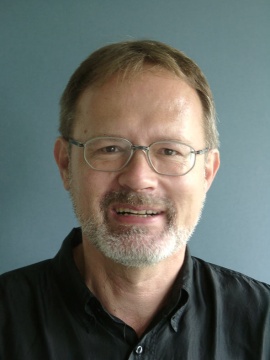
Ernst-Günter Heinemann (Editeur)
Dr. Ernst-Günter Heinemann, born in 1945 in Bad Marienberg (Westerwald), completed his schooling in Gießen and read musicology, philosophy and German in Marburg and Frankfurt/Main and also for some time Protestant church music. He did his doctorate on “Franz Liszts geistliche Musik. Zum Konflikt von Kunst und Engagement”.
From 1978–2010 Heinemann worked as an editor at G. Henle Publishers (in 1978 in Duisburg, from 1979 onwards in Munich). He edited a great many Urtext editions for the publishing house, including “Das Wohltemperierte Klavier”, Volume 1 by Bach and all of Debussy’s piano works. In addition, he wrote essays on Debussy, Grieg, Liszt, Mendelssohn and questions concerning general editing, as well as giving seminars on editorial practice for musicology students in Munich.
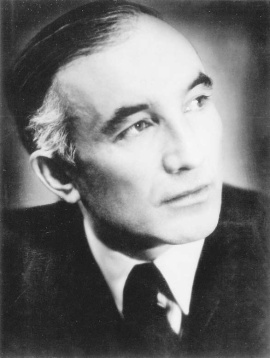
Hans-Martin Theopold (Doigtés)
Prof. Hans-Martin Theopold, was born to a pastor’s family in Detmold on 22 April 1904, the youngest of five children. Even as a child he often played the organ in the “Marktkirche” and soon began to take piano lessons with Theodor Vehmeier. At the age of 17 he made his debut at the Landestheater in Detmold with Ludwig van Beethoven’s Piano Concerto in C major under Friedrich Quast (Herford). Following the successful completion of his schooling at the Gymnasium Leopoldinum in Detmold, he went on to study music and piano (main subject): from 1922–23 at the “Württembergische Hochschule für Musik” in Stuttgart (with Max Pauer, 1866–1945) and then from 1923–1928 at the “Staatliche Akademische Hochschule für Musik” in Berlin-Charlottenburg (with Richard Rössler, 1880–1962, and Waldemar Lütschg, 1877–1948). After completing his piano studies (graduating with “very good”) in 1928, he began an active solo career both at home and abroad (USA, Switzerland, Scandinavia, the Baltic states, the Balkans). As a member of the Chamber Music Association of the State Opera in Berlin (from 1933) he also gave countless chamber music concerts, including ones with his violin partner Gustav Havemann (1882–1960).
In the 1930s, audiences and the press alike raved about Theopold’s extraordinary gifts as a pianist: “This young player has it in him to soon become one of the best players in Germany. A superior technique, a wonderful singing piano tone, the strength of a Titan, but not at all hard due to the incomparably gentle elasticity of his touch” [Münchener Zeitung, 21 November 1933]. – “H.M. Theopold gave convincing proof of his splendid pianistic ability in an extremely gripping sonata with a modern idiom by Alban Berg, but predominantly in Schubert’s […] Wanderer Fantasy, which he played with a polished technique and creative power” [Weser-Zeitung, 21 December 1932]. Theopold was awarded several prizes, including the “Grotrian-Steinweg-Preis” in 1928.
In 1937 Theopold became a teacher for the piano (main subject) at the “Bayerisches Staatskonservatorium der Musik” in Würzburg. In 1939 he married Irene Tatjana Wülfing, who was from Moscow. From 1943 he became head of the piano master-class at the “Nordische Musikschule” in Bremen, although this was interrupted by the events of the war. Following his return from a prisoner of war camp, Theopold gave concerts and taught although he did not hold a permanent position. From 1955–1956 he was acting head of the piano master-class at the “Bergisches Landeskonservatorium” in Wuppertal, finally being appointed Professor for Piano on 1 April 1956 at the “Staatliches Institut für Schul- und Volksmusik” in Detmold, later at the “Nordwestdeutsche Musikakademie Detmold” (today “Hochschule für Musik Detmold”), where he taught for decades. On 30 September 1969 he retired. “His students extol his pedagogical gifts. […] Humour, charm, helpfulness and kind-heartedness moderate the strictness of his professional ethos as a musician and teacher” (Lippische Rundschau, 23 April 1969; see also: Lippische Landeszeitung 22 April 1969 on the occasion of Theopold’s 65. birthday: “Prof. Theopold, a modest but at the same time energetic man, is an enthusiastic teacher”). Theopold died in Detmold in 2000.
Contact with Günter Henle was established directly after the publishing house was founded, when Theopold thanked the publishers with great enthusiasm for its first Urtext editions. His extensive correspondence with the publishing house was bequeathed to the Lippische Landesbibliothek in 2014 to ensure its long-term accessibility to the public. The letters testify not only to Theopold’s great interest in musical sources and text questions but also to his initial strict refusal (!) of fingerings in text-critical editions such as these: “For fingerings are and remain something individual no matter what their quality” (letter to Günter Henle from 26 May 1949 {publishing house archives}). Günter Henle was not, however, to be swayed and stressed the necessity of fingerings in his Urtext editions: “It is better to publish the Urtext […] with fingerings that are not necessary for a few individuals, or that might even, I admit, be considered irritating here and there” (letter to Hans-Martin Theopold of 17 September 1953).
It was only in 1955 that Theopold accepted Günter Henle’s offer of contributing fingerings for an Urtext edition that was in the process of being prepared by way of trial. (HN 74, Schubert, Complete Dances for Piano, Volume 1). Following this, Theopold was commissioned to write the fingerings for nearly all of the publishing house’s new editions in quick succession. Günter Henle, himself a good pianist, greatly valued Theopold’s fingerings, and also the many suggestions regarding the musical text in question. In addition, Theopold was always very reliable, thorough and conscientious – something that is not unimportant with editorial work!
Thus to date Hans-Martin Theopold has provided the fingerings for the greatest number of Henle Urtext editions by far – 226 editions (!) in total.
We would like to thank Mrs Margot Theopold and the Hochschule für Musik in Detmold for their great support in providing biographical material.
G. Henle Verlag
Informations sur la sécurité du produit

G. Henle Verlag
Vous trouverez ici des informations sur le fabricant du produit.G. Henle Verlag e.K.
Forstenrieder Allee 122
81476 München
Allemagne
info@henle.de
www.henle.com
recommandations
autogenerated_cross_selling
Autres éditions de ce titre
Autres éditions de ce titre


